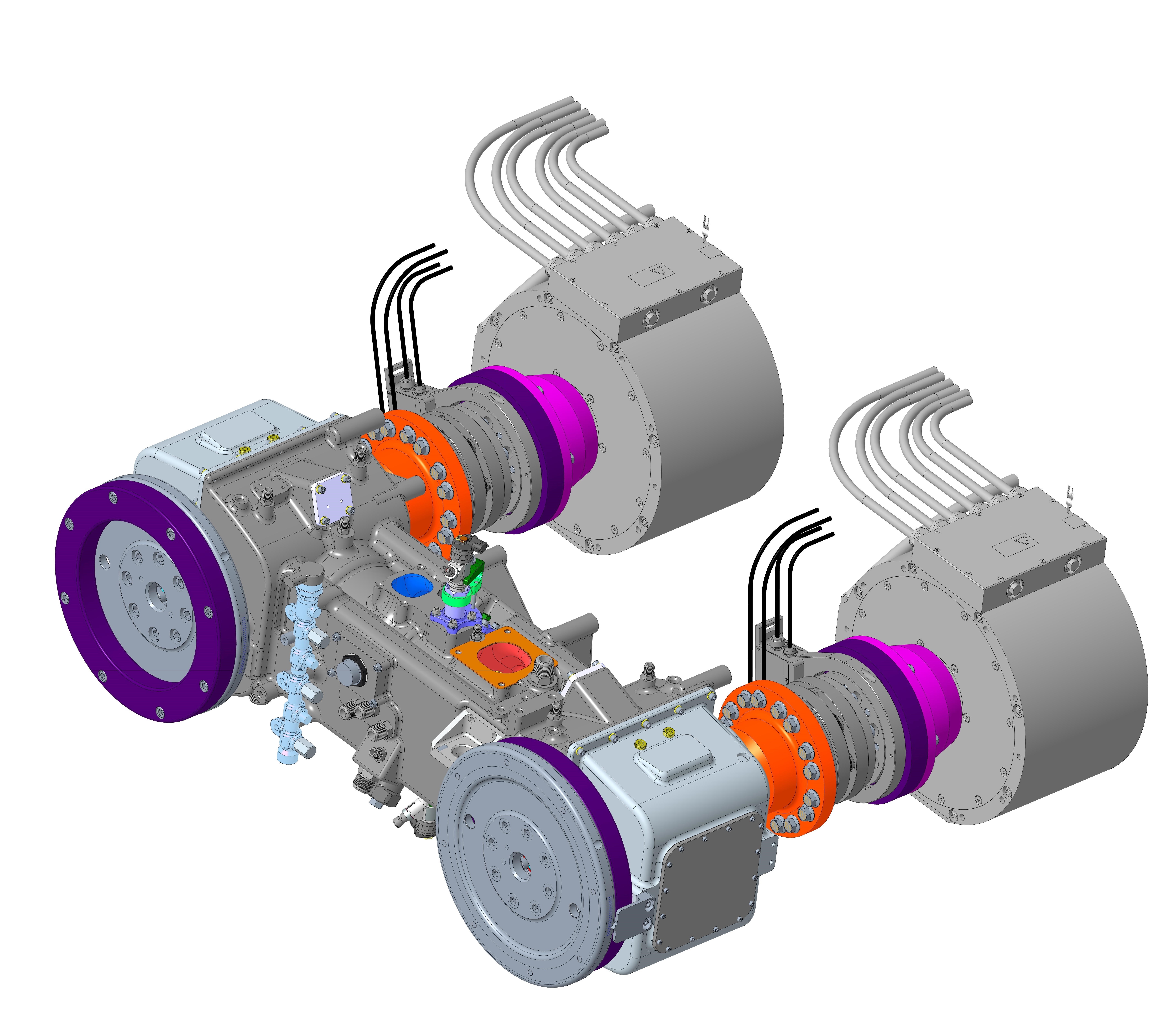Adapting Engines for the Future

Autonomous vehicles conduct routine as well as dangerous missions, allowing humans to focus on other aspects of the work in safety. Vehicle electrification enables additional tactical advantages such as silent operation, but longer missions still require an engine that can maintain the power supply. Currently, hybrid engines, which leverage energy dense fuels, remain the best option. A team of researchers at the University of Michigan are working to enhance a hybrid opposed piston (OP) engine that can transition between operating regimes and adapt to environmental conditions.
“It’s neat math, and a real controls challenge,” said Jason Siegel, associate research scientist in mechanical engineering at UMich and lead researcher on the project. “No other engine operates this way. There is no playbook for how we do this work.”
An OP engine has many favorable qualities. It has a low heat rejection, optimally phased combustion, turbulent combustion, reduced pumping work, and a high power-to-weight ratio. In addition, the single cylinder configuration is almost perfectly balanced, making it an ideal candidate for hybrid operation. The hybrid OP engine will be able to transition between high efficiency and high power operating regimes, providing the operator maximum flexibility.
“With this approach, we can reconfigure the engine operating cycle to switch to meet the mission requirements, adding another degree of freedom,” said Joseph Drallmeier, a doctoral student in Siegel’s lab and a team member working on the project. ”We are laying the foundation of what type of control strategies we can use to maintain engine operation and what type of hybrid architecture [we can] create with this”
This project provides the testbed for a self-calibrating and self-diagnosing fuel-efficient power source. To optimize operating conditions for surrounding environments, Siegel and his team aim to leverage the existing hybrid OP engine, built in collaboration with Achates Power Inc and funded by the 2018 ARPA-E open program, to evaluate the impact of piston motion on engine breathing and closed cycle dynamics. They will also develop an adaptive control algorithm to define ideal piston motion profiles for different engine operating conditions and employ a tradespace analysis to demonstrate how motor size can be altered for different applications.
These modeling tools developed to evaluate engine performance will also provide a way for the vehicle to perform a self-assessment, which will include the quantity of fuel injected, cylinder pressure, torque generation, and crank position. These parameters will guide the vehicle’s internal assessment to determine the health of the engine.
###
Siegel and Drallmeier are joined by Robert Middleton at UMich, Dean McGrew at Ground Vehicle Systems Center, and Laurence Fromm at Achates Power Inc. on the project, titled “Learning Enabled Mission Adaptation for a Hybrid Opposed Piston Engine.” The project received funding through the Ground Vehicle System Center at the University of Michigan.
Stacey W. Kish

